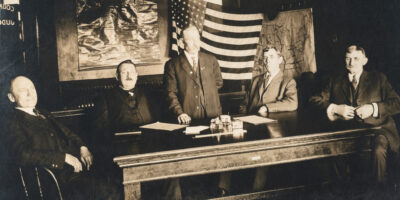“The Role of International Law in Monetary Affairs”
“Monetary affairs have been a stronghold of national sovereignty, and international law is poorly developed in this field, which has been characterized by informal coordination. This article explores the theoretical underpinnings of monetary competition and the potential role of international law in framing such competition beyond institutional arrangements. We argue that, so far, the most important contribution of international law to financial stability has been made by an open and rule-based trading system of the World Trade Organization and the legal protection of investment. As to monetary cooperation, different models are discussed, ranging from harmonization and formal cooperation to predominantly informal, asymmetrical arrangements. While affirming the need for monopoly powers in the field, we argue that international monetary competition is the main tool in preventing and remedying the risks of abuse of monopoly powers inherent to national currencies. It should be framed accordingly within a system of multilayered governance. The article asks what can be learned from principles of competition and trade policies. It argues that principles of non-discrimination, in particular, national treatment and conditional most-favored nation, offer an important starting point in achieving a rule-based regulatory framework for stable monetary competition.” Read more.








